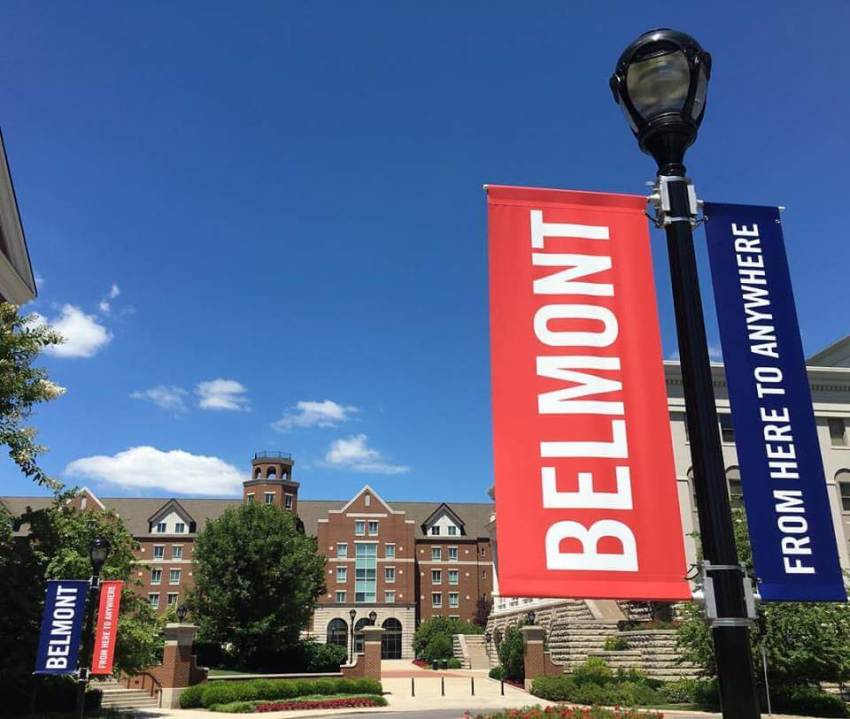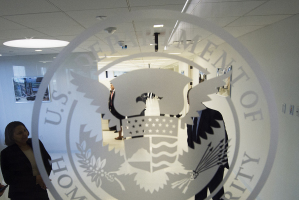Students sue to stop Christian university from merging with art college in Tennessee

Students and faculty at Watkins College of Art in Nashville are suing to stop the school from being absorbed by the nearby Christian nondenominational Belmont University.
On March 10, two students who are members of the LGBT community and one instructor filed legal actions in Davidson County Chancery Court to stop Belmont’s acquisition of the secular, four-year art college, which has faced declining enrollment and financial uncertainty in recent years.
The merger drew concern from community members and a legislator who accused the Watkins’ board of trustees of acting in secrecy to complete the deal with Belmont without government oversight or the public being informed.
Questions were also raised about whether non-Christian faculty at Watkins would be able to keep their jobs once the merger is complete in fall 2020.
The agreement called for Watkins' 13-acre campus, which is about six miles from Belmont’s campus and said to be worth about $15 million to $20 million, to be sold. The proceeds from the sale would be used to create an endowment for Watkins College of Art students at Belmont.
But a collective of students, faculty members and alumni have banded together in an attempt to keep Watkins College of Art open “in its current form,” work toward a partnership with a different institution or change “existing policies at Belmont for the benefit of all current and future Watkins students.”
“The board’s lack of transparency has severely impacted the lives of current students,” reads a press release from Save Watkins collective.
The plaintiffs allege a “breach of faith” by the Watkins Institute commissioners and the college’s board of trustees. They requested a restraining order “to immediately halt any actions by the Watkins board toward dissolving or altering the Watkins Trust, or selling any Watkins property while the matter is being considered."
The plaintiffs argue that Watkins College of Art is a public institution and the agreement between Watkins and Belmont is invalid.
Watkins College of Art was founded as a gift to the state to be held in trust for the benefit of Nashville’s youth. It was founded on land willed to the state for an educational institute by Samuel Watkins.
But in 1974, the Watkins governing board filed a charter to become a nonprofit organization. According to a legal response filed on behalf of Watkins College of Art, the institution has "no tie to the state of Tennessee" except for three commissioners appointed by the governor.
"The state has no voting control and no oversight powers with respect to Watkins' management and operations," the legal response reads.
As Inside Higher Ed points out, Watkins is technically a private institution with a unique relationship with the state as it is audited under government auditing standards that are rarely applied to private institutions. The management of the Watkins board is “at all times to be subject to inquiry by the authority of the state.”
The plaintiffs are asking the court to determine whether the Watkins commissioners and board of trustees can unilaterally transfer the school’s associated property to a private religious institution without legislative or judicial oversight and extinguish the Watkins public trust.
The plaintiffs also question whether the school’s trustees and administrators were allowed to conduct negotiations with Belmont, a school with a Baptist heritage, in secret and subsequently ignore an open records request.
Additionally, the lawsuit asks the court to determine if the dissolution of Watkins College violates the terms of Samuel Watkins’ 1880 will.
According to court documents, the student plaintiffs — Kenneth Straw and Amari Harris — are concerned that as members of the LGBT community they will not be welcome at the private Christian university.
Straw argues that had he known about the merger three days earlier, he would have had time to reconsider signing his lease.
“It doesn't get much clearer that Watkins is a public educational institution, yet the current commissioners and board seek to ram through an insider deal that gives $20 million in state property proceeds to a private religious institution without public scrutiny or legislative oversight,” adjunct professor Mark Schlicher, the third plaintiff, said in a statement.
The plaintiffs' request for a restraining order to halt the merger immediately was denied. However, a hearing for a temporary injunction against the order took place last Friday.
"In this case, Plaintiffs present affidavits containing hearsay, opinion, and mere speculation," the Watkins College of Art legal response reads. "The affidavits and Complaint together fail to establish that Watkins’s actions will cause irreparable harm. Plaintiffs are unable to establish standing to challenge Watkins’s actions and fail to state a claim upon which relief can be granted."
Watkins President J. Kline, who played a large part in organizing the deal, was removed from overseeing the transition process in February after criticism of the merger. The transition instead will be coordinated by Watkins Interim Vice President for Academic Affairs Cary Beth Miller.
Watkins officials maintain that the college considered other offers before agreeing to the deal with Belmont. However, Sen. Brenda Gilmore earlier this month questioned why neighboring historically black colleges Tennessee State University and Fisk University were not approached for a potential deal.
In a letter, Gilmore called for a suspension of the Watkins-Belmont deal and called on Watkins commissioners and trustees to answer community questions about the deal at a public meeting.
Gilmore said she found it “troubling” that she — a state senator from the district where the campus is located — was not informed about the deal. A Watkins spokesperson told Inside Higher Ed that school officials will meet with Gilmore next week.
James H. Clayton III, a duly appointed commissioner of trustees, filed an affidavit on March 19, explaining that the board turned to a "distinguished higher education consulting firm" in 2019 to assess the institution's financial struggles and declining enrollment.
The firm's report indicated that Watkins' depleted endowment would be insufficient to sustain continued operating losses, Clayton relayed. According to Clayton, Watkins would be required by federal laws and regulations to "teach out" existing classes through graduation years if it were to close down rather than merge.
"The cost of the teach out would be considerable," Clayton explained. "The only potential sources of funds to pay for the teach out would be (a) through the sale of the Campus coupled with a short-term lease obligation, or (b) if obtainable, a commercial loan secured by the Campus. Either option would severely deplete the Campus equity and result in fewer funds distributed to appropriate nonprofit entities as Watkins finalizes its ultimate dissolution and winding up process."
In fall 2019, Clayton said the board created a special committee comprised of current and former trustees and commissioners to review all possible strategic options. Such options included attracting unrestricted gifts, obtaining significant loans secured by the campus or merging with another college or university with "overlapping curricula and a stable financial future."
Clayton stressed that the committee determined that a merger was the "only viable option."
He stated that the committee approached colleges and universities around the Middle Tennessee area and Belmont "was determined to be the most suitable merger partner for a number of reasons, including that Belmont currently offers many of the same degrees and degree paths as Watkins."
Clayton assured that the board considered "feasible alternatives" to the merger.
"Ultimately, the Board determined that a Belmont merger containing the favorable terms outlined in the Term Sheet was the best available strategic decision for Watkins," he wrote.
A legal response filed by the office of Attorney General Herbert Slatery III on March 19 contends that the "petitioners do not appear to have the authority to challenge the actions" of Watkins College of Art.
The attorney general's office argues that Tennessee law dictates when the actions of a nonprofit organization can be challenged and who may bring such a challenge.
One stipulation states that a proceeding may only be brought by a "director, the attorney general, or the corporation directly..."
"Petitioners do not allege that they are directors, members, or other legal representative, nor have they brought this action as a derivative proceeding," the legal response from the attorney general's office contends.
Watkins argued in its legal response that Tennessee law makes clear that nonprofit corporations "are not answerable to the communities they serve or their employees with respect to asset sales or mergers."
Earlier this month, the New York-based commercial real estate company Somera Road offered to buy the Watkins campus for $17 million and offered a generous leaseback agreement in which Watkins College of Art could stay one-year rent-free and then pay rent that is 30 percent under market rate.
The deal would also include a $1 million escrow fund to cover short-term financial needs, according to Nashville Scene.
In a media statement, the Watkins board of trustees said that it appreciates Somera’s offer “and will review it along with multiple other offers for the property."
Save Watkins is also calling on Republican Gov. Bill Lee to remove one of Watkins' commissioners, Susan Basham, after a process server for attorneys retained by plaintiffs said he was threatened with a gun by a man presumed to be Basham’s husband at her home last Tuesday.
A police report of the incident was filed.
Follow Samuel Smith on Twitter: @IamSamSmith
or Facebook: SamuelSmithCP



























